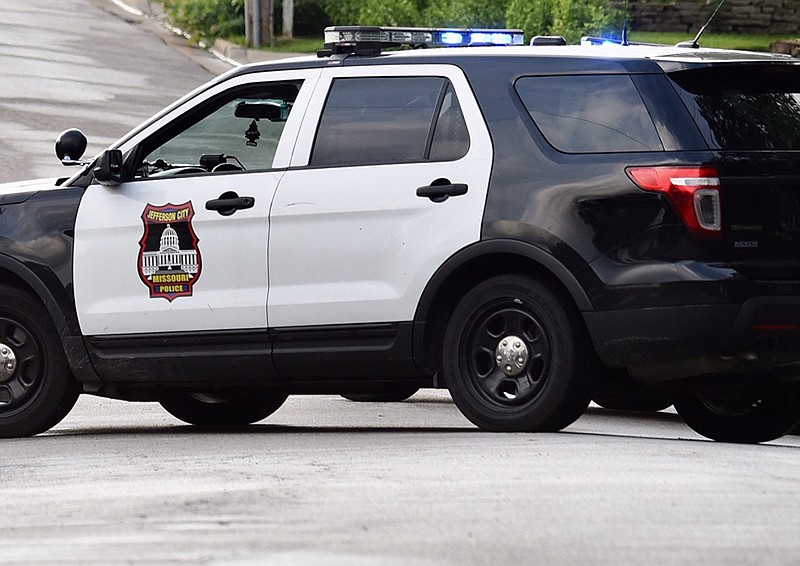The Jefferson City Public Safety Committee circled back to the topic of replacing Jefferson City Police Department vehicles at length Thursday.
Police Chief Roger Schroeder provided the committee with a list of 21 vehicles that should be replaced by 2021 due to high mileage.
The list included the 13 pink sheets - funding requests - the department submitted to the Jefferson City Budget Committee for fiscal year 2020, which begins Nov. 1.
The city's Budget Committee on Monday approved funding six of those 13 replacement police vehicles for approximately $243,780. The committee voted to fund the vehicles from the police renovations and upgrades funds in the Capital Improvement Sales Tax G fund.
When the department is looking to replace vehicles, Schroeder said, the bigger picture is the type of service those vehicles provide.
"I think what we sometimes overlook unconsciously is how much safety the car provides the community," he said. "Whether it's the license plate reader that identifies a car with a murderer in it or the first-aid things that we carry in our vehicles, the computers that might take another dangerous person off the street because we identified an outstanding felony warrant.
"If you just go down the list of the things contained in the car, it's not just a mode of transportation. Look at the equipment within that vehicle. It's used every day to further the safety of everybody in the city."
Ward 3 Councilman Ken Hussey asked for the list of vehicles approaching high mileage or replacement status at a budget meeting earlier this month. The information could help the City Council be better prepared for future discussions, he said.
That list included 15 vehicles that would accrue an estimated 126,435-166,671 miles, if the Budget Committee replaces six vehicles in FY2020.
Vehicle assignment changes regularly, Schroeder said. High-mileage vehicles could be reassigned from patrol to school resource officer, which would save mileage.
Aside from mileage, the committee discussed other ways of determining the age of vehicles.
"I'm not questioning a car with 133,000 (miles) averages 37,000 a year," Hussey said. "I get it. That's a high-mileage vehicle. But if we're going to say that mileage isn't the only indicator, I think we owe it to the public to communicate what the other indicators are that go into considering replacing a vehicle."
Committee members mentioned idle time, parts and road conditions also determine the wear and tear of a vehicle.
One hour of idle time is equivalent to 22 miles, according to Ford, Detective Jason Ambler said.
"If the desire is to approach the public at some point and say, 'We need to have a strong conversation about replacing the capital needs in the city,' and let's say that requires additional tax revenues of some sort," Hussey said, "I think, if we can't communicate to the public that we do an accurate and spot-on job of tracking things and that we have a clear picture of the fleet, then they're not just going to be willing to increase their taxes or support some sort of increase."
Hussey requested the department look into information on all of the vehicle assignments, current and projected mileage, and a potential idle time study.
Ambler recalled when the city replaced a certain amount of police vehicles each year and wondered if that goal could be achieved again.
Jefferson City regularly replaced police vehicles before the city's budget crisis in 2013, Schroeder said in July 2018.
In September 2018, the Jefferson City Council approved nine out of 14 vehicles requested in the FY19 budget, which began Nov. 1, 2018, and ends Oct. 31, 2019.
"We were on a pace of replacing nine cars a year, which was keeping us in good graces," Ambler said.
During last year's budget discussions, Ambler said, Schroeder told the council that the 13 vehicles would be in the requests this year.
"We're never going to catch back up," Ambler said. "This is where my brain just starts coming up with different ideas and hypotheticals."
He added the city could allow the unreserved fund balance to dip below 17 percent to allow for the purchases.
The city's financial policies require the unreserved general fund balance to be at least 17 percent of expenditures.

